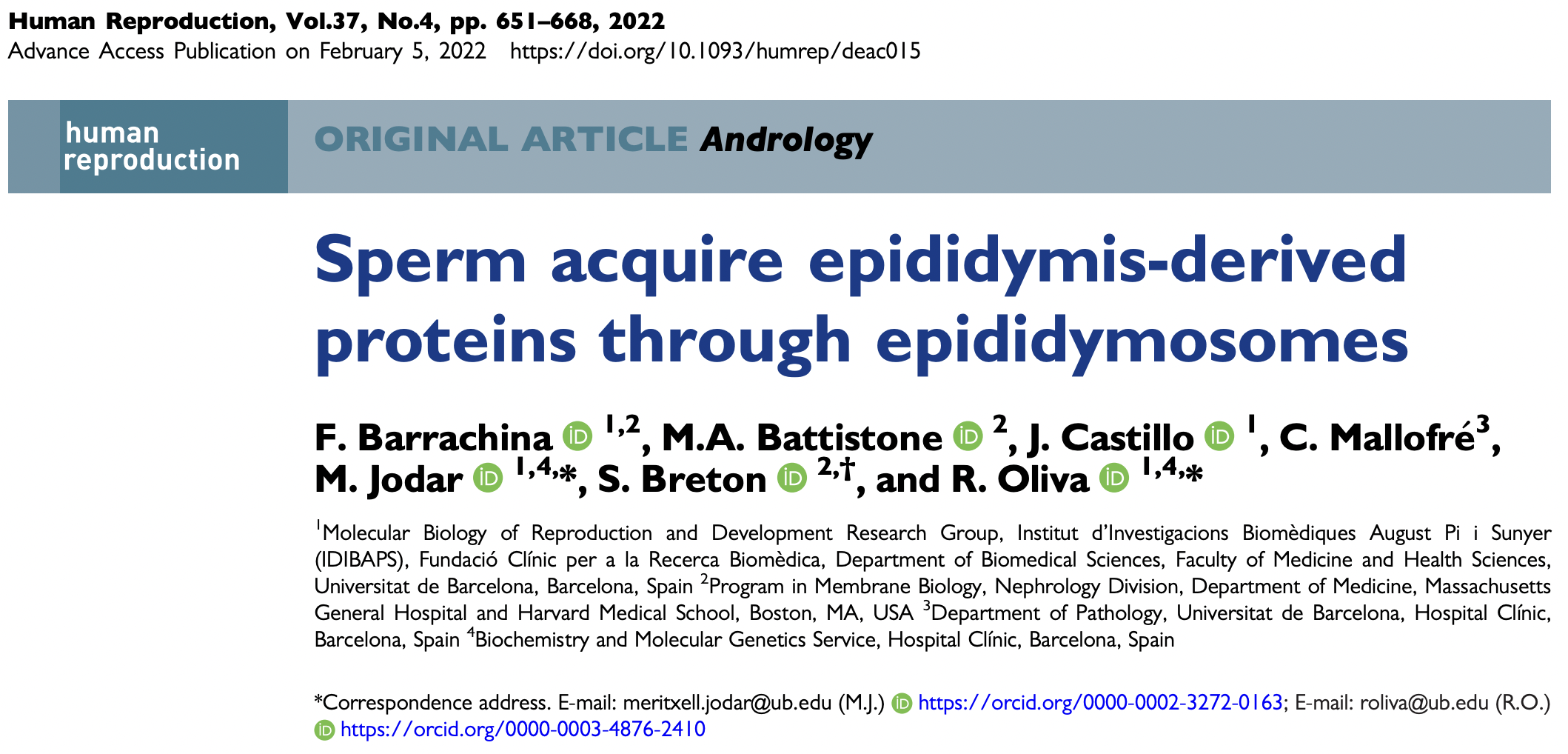Sperm has classically been perceived as a vehicle of the male genome to the zygote. However, thanks to the application of high-throughput technologies to study the male gamete, it is now known that this small cell is much more complex than a simple DNA carrier. The sperm cell contains, besides the paternal genome, a great number of proteins and RNAs, and a complex landscape of protein and DNA epigenetic marks.
Among the almost 7000 proteins identified in the human sperm proteome, it is suggested that not all of them have a testicular origin (Castillo et al., 2018). But how do proteins with a non-testicular origin end up in the transcriptionally and translationally inert sperm cell? It has been speculated that extracellular vesicles embedded in secretions from the epididymis, prostate, seminal vesicle, and bulbourethral glands may deliver different molecular components to the sperm cells after they leave the testes, essential for their final maturation and function.
In a recent article published by Barrachina and colleagues in the journal Human Reproduction (Barrachina et al., 2022), it is shown that extracellular vesicles derived from the epididymis (epididymosomes) provide the mice sperm with proteins of an exclusive epididymal origin during their epidydimal maturation. Interestingly, these proteins were secreted by epididymal clear cells, highlighting a novel role of these cells in extracellular vesicle production. Through in silico analysis, the authors reported a list of 25 sperm proteins with epididymal origin conserved in human and mouse sperm, mainly involved in sperm maturation and function, fertilization, antioxidant protection of sperm, and male reproductive tract immunity. From that list, four proteins were validated in vitro through a combined strategy of co-incubation of epididymal sperm with carboxyfluorescein succinimidyl ester (CFSE)-labeled epididymosomes: SLC27A2, EDDM3B, KRT19, and WFDC8. High-resolution confocal microscopy was used to visualize the direct interaction between sperm and the epididymosomes containing the epididymal proteins.

These data support that epididymosomes can carry and deliver epididymis-derived proteins to sperm, modulating the sperm proteome and contributing to the post-testicular maturation of sperm cells. Further research is needed to clarify the role of these proteins in post-fertilization events. Deciphering the role of epididymosomes on sperm function may shed light on male infertility problems and can contribute to identify altered molecular targets to improve male reproductive health.
References:
Barrachina F, Battistone MA, Castillo J, et al. Sperm acquire epididymis-derived proteins through epididymosomes. Hum Reprod. 2022;37(4):651-668. doi:10.1093/humrep/deac015
Castillo J, Jodar M, Oliva R. The contribution of human sperm proteins to the development and epigenome of the preimplantation embryo. Hum Reprod Update. 2018;24(5):535-555. doi:10.1093/humupd/dmy017

